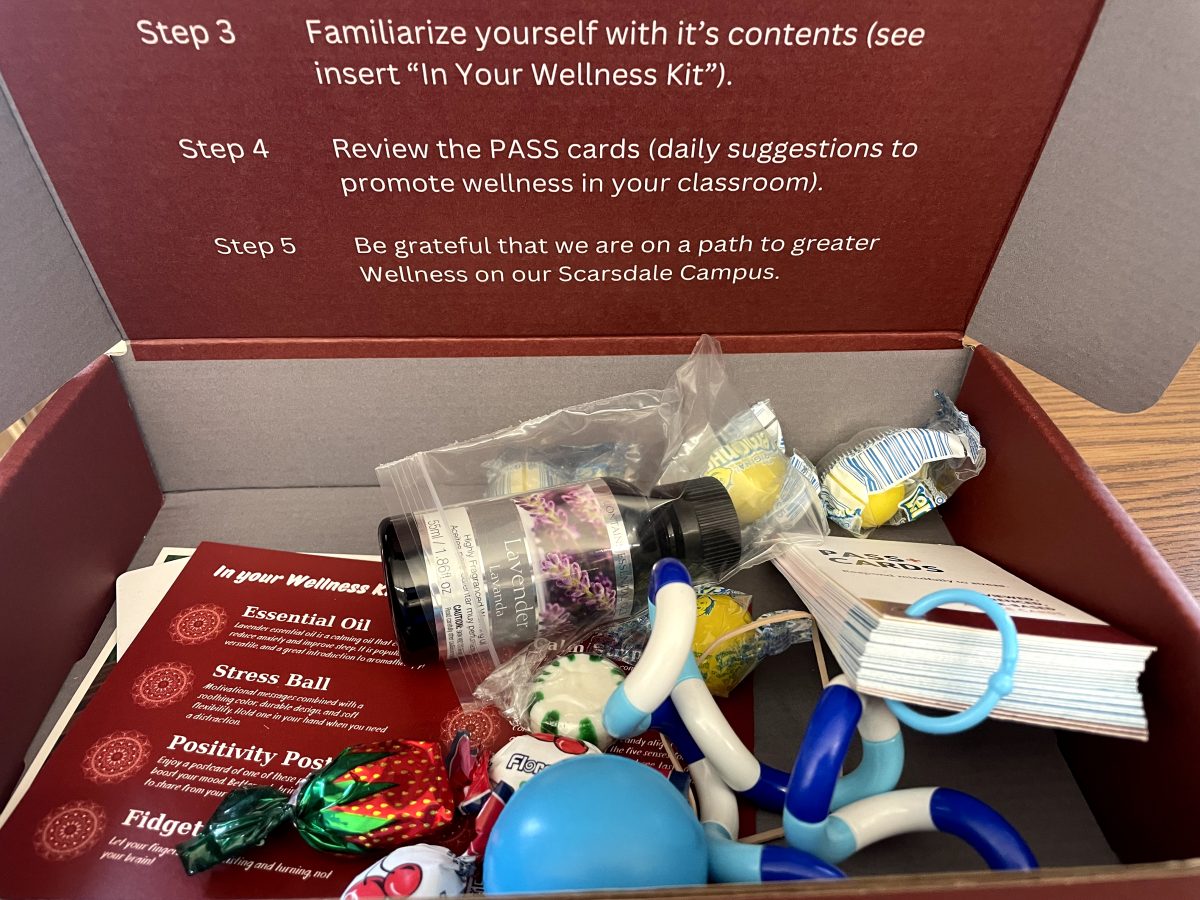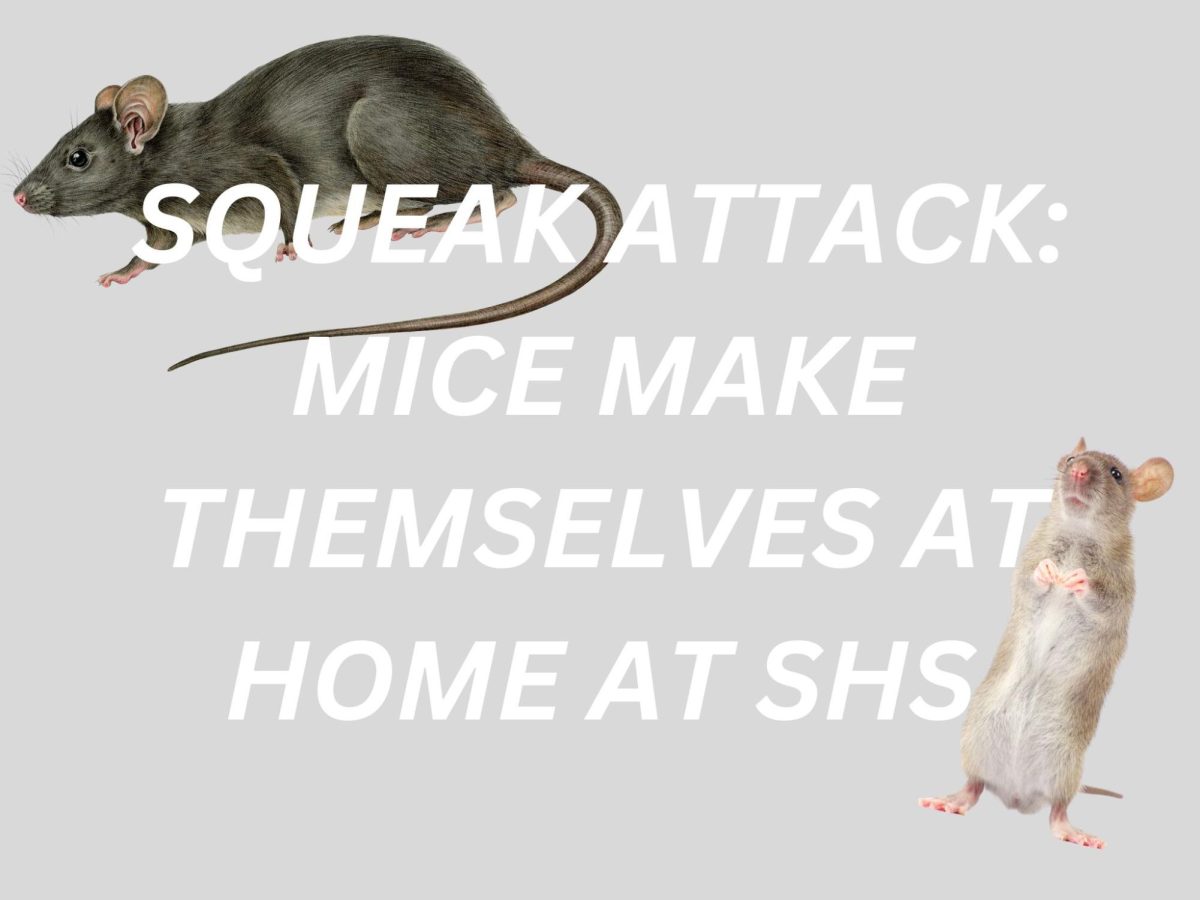Scarsdale High School has recently implemented wellness kits in classrooms designed to enhance relaxation, stress relief, and mindfulness throughout the school day. These kits contain a variety of items, including stress balls, fidget tools, lavender oils, PASS (panic, anxiety, stress, and support) cards, and candies. Students have generally found the kits easy to locate and access, often pointed out by teachers at the beginning of the year, who received briefings on the purpose and contents of the kits.
While student engagement with the kits is evident, the long-term effectiveness of these resources in fostering a supportive and positive school environment remains a topic of ongoing assessment. Head of the SHS Wellness Committee Frank Candullo has noticed fewer students leaving the room during classes and instead using the kits to help them. “[I think] it has made people feel a little more comfortable about acknowledging the fact that they’re feeling anxious…which I think is an improvement,” Candullo remarked.
As for the factors contributing to mental health, there continue to be several. From the COVID pandemic to an increased dependency on technology and social media to academic stress and rigor, the question of how SHS can help support the mental wellness of its students has no single answer. “A lot of our kids are goal-oriented, and that’s great, but I think it also blocks us from celebrating small victories that are happening every day. [We’re] thinking about where we’re going next instead of where we are,” Candullo expressed.
To address this, Mental Health Awareness Club officer Stacey Liew ’26 advocates for simple self-care practices, such as taking breaks when needed, hydrating often, going outside even if just for a few minutes, and exploring passions in free time. These acts to promote wellness on the individual level remain crucial in a large school setting. “It’s hard to implement a good school-wide solution as they always take a lot of time and at the end of the day, students have to seek out the resources themselves,” Adrian Wang ’26 said.
Nonetheless, the wellness kits have progressed an important discussion and movement towards reducing the stigma surrounding mental health. “The more we encourage honest dialogue and give students the tools and language for seeking out support, the more we will be able to address mental health issues before they become overwhelming,” SHS social worker Lauren Pomerantz said. Looking ahead, the Mental Health Awareness Club plans to continue hosting therapy dogs along with other initiatives, including free wellness goody bags, a bulletin board with content to give students a “brain break,” a holiday crafts and snacks event, and merchandise sales. The Wellness Committee also intends to utilize ideas from PASS cards to create informative posters throughout the school.
The overarching focus of SHS’s Wellness Committee is to cultivate a wellness campus. “It’s about building a community and building a place where we’re interacting with each other more face-to-face instead of…zooming through the building and zooming through life,” Candullo explained. Pomerantz further elaborated on the importance of distinguishing this focus on wellness from mental health. “Wellness is the active pursuit of activities, choices and lifestyles that lead to a state of holistic health,” she said. “We are all trying to seek a balanced lifestyle that makes us feel like we are thriving, not just surviving.”














